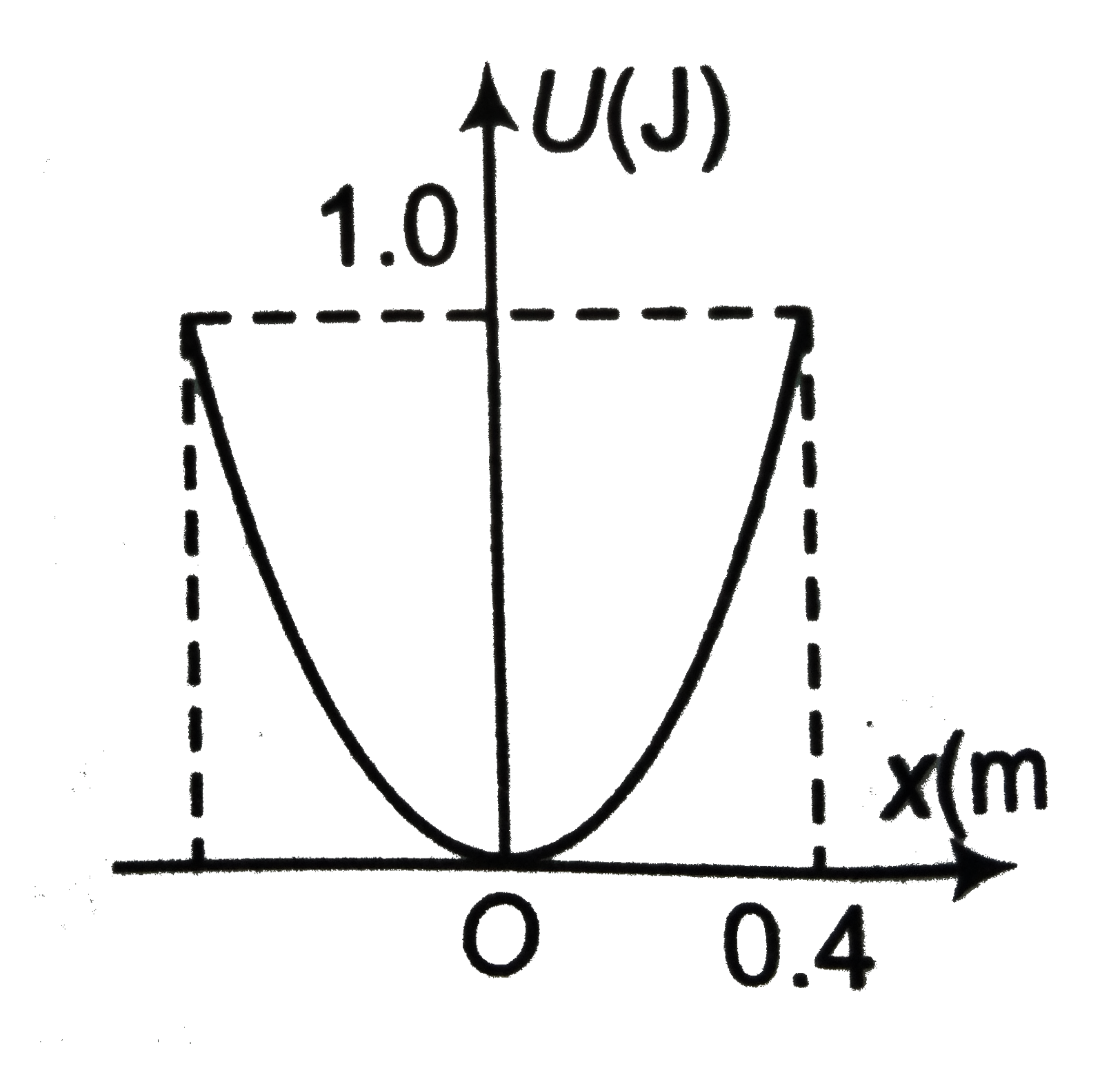Potential energy (U) of a body of unit mass moving in a one-dimension conservative force fileld is given by, U = – 4x + 3). All units are in S.I. (i) Find the equilibrium position of the body. (ii) Show that oscillations of the body about this equilibrium position is simple harmonic motion & find its timeperiod. (iii) Find the amplitude of oscillations if speed of the body at equilibrium position is m/s.
(i) (ii) T = sec (iii)
Topper's Solved these Questions
- BOOK - MOTIONCHAPTER - SIMPLE HARONIC MOTION EXERCISE - EXERCISE -3 (Leve-I) ( SECTION - C ) ( Two block system )2videos
SIMPLE HARONIC MOTION
- BOOK - MOTIONCHAPTER - SIMPLE HARONIC MOTION EXERCISE - EXERCISE -3 (Leve-I) ( SECTION - D ) ( Combination of springs )2videos
SIMPLE HARONIC MOTION
- BOOK - MOTIONCHAPTER - SIMPLE HARONIC MOTION EXERCISE - EXERCISE -3 (Leve-I) ( SECTION - A ) ( Equation of SHM, Velocity and Acceleration in SHM, Energy of SHM )4videos
SIMPLE HARONIC MOTION
- BOOK - MOTIONCHAPTER - SIMPLE HARMONIC MOTIONEXERCISE - EXERCISE -3 Section - B Previous Year Problems | JEE MAIN23videos
SIMPLE HARMONIC MOTION
- BOOK - MOTIONCHAPTER - SOUND WAVESEXERCISE - Exercise - 3 (Section - B)14videos
SOUND WAVES
Similar Questions
Potential energy (U) of a body of unit mass moving in a one-dimension conservative force field is given by, U=(X2−4X+3). All units are in S.I.
View SolutionThe potential energy of a particle under a conservative force is given by U(x)=(x2−3x) J. The equilibrium position of the particle is at
View Solution
Knowledge Check
- Question 1 - Select One or More
The potential energy (U) of a body of unit mass moving in a one-dimension foroce field is given by
U=(x2−4x+3) . All untis are in S.LAFind the equilibrium position of the bodyBShow that oscilliations of the body about this equilibrium positon in sample harmonic motion and find its time periodCFind the amplitude of oscilliations if speed of the body at equilibrium position is 2√6m/sDFind the amplitude of oscillators if speed of the body at equlibrium position is 2√6m/s. - Question 2 - Select One or More
The potential energy U of a body of unit mass moving in one dimensional conservative force field is given by U=x2−4x+3. All units are is SI. For this situation mark out the correct statement (s).
AThe body will perform simple harmonic motion about x=2 units.BThe body will perform oscillatory motion but not simple harmonic motion.CThe body will perform simple harmonic motion with time period √2πs.DIf speed of the body at equilibrium position is 4ms, then the amplitude of oscillation would be 2√2m - Question 3 - Select One
The potential energy of a body mass m is U=ax+by the magnitude of acceleration of the body will be-
AabmB(a+bm)C√a2+b2mDa2+b2m
The potential energy of a particle under a conservative force is given by U(x)=(x2−3x) J. The equilibrium position of the particle is at
View SolutionThe potential energy of a conservative force field is given by
U=ax2−bx
where, a and b are positive constants. Find the equilibrium position and discuss whether the equilibrium is stable, unstable or neutral.View SolutionPotential energy of a particle at position x is given by U=(x2−4x)J. Which of the following is equilibrium position of the particle?
View SolutionA particle of mass 2kg moves in simple harmonic motion and its potential energy U varies with position x as shown. The period of oscillation of the particle is
 View Solution
View SolutionPotential energy of a particle at position x is given by U=x2−5x. Which of the following is equilibrium position of the particle?
View Solution
